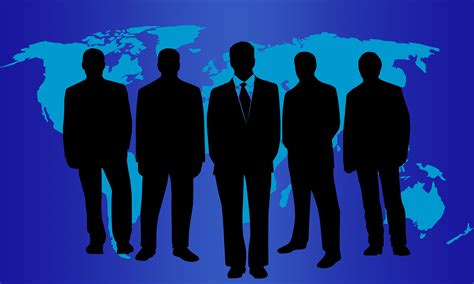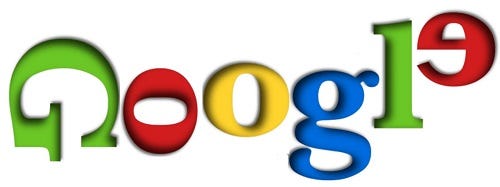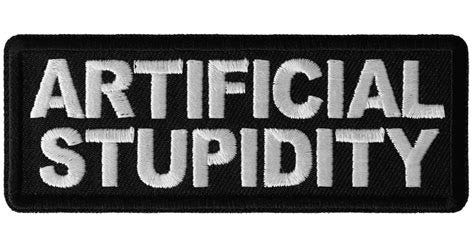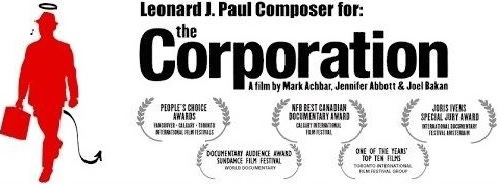The A.I.s are already here!
Unfortunately, they're all insane...
A corporation is an entity defined in law and made up of a variety of elements, relationships and processes. There are generally physical things that will depend upon the nature of the organisation and may include buildings, offices, furniture, computers, documents, vehicles, filing cabinets, telephones, waste paper bins, pens and the like. It will also include recordings of various types, relating to the stability of the organisation such as policies, procedures, rules, codes of practice, and protocols.
Human beings will be involved at various levels. Individuals will have their function defined by something like a documented job description, although they may have their own personal, internal description of their job that does not necessarily match the external one. They will also have a sense of their relationship with other elements within the organisation, human or otherwise and their will be some sort of corporate, cultural sense of a "we" or "us".
There will be inputs and outputs of various types, supply and distribution chains involving the movement of raw materials, energy, information and finances that connect the corporation to other corporations or the "outside world" generally. Outputs include finished products or services and pollution. All this is bound together in a complicated web of relationships and networks that might be represented in part by organisational maps, flowcharts, time tables and the like.
It is easy to fall into thinking that a corporation has a specific, simple task or purpose, such as the provision of a particular service or manufactured item. This suggests that the corporation is some sort of benign entity that tirelessly operates to fulfil our essential needs, (falls off chair laughing...).
Actually, that is how they started, as time delineated entities that were set up to meet specific societal needs, such as to build a bridge or a city sewage system. Investors were more or less philanthropists who would get their name inscribed on a plaque. When the project was completed, the corporation was disbanded, having finished its task. The idea that you could make money out of them had not yet been fully realised.
All that changed when clever corporate lawyers argued that a corporation should be allowed to persist in time, beyond its original remit, using a law that was originally intended to safeguard former slaves. From a legal perspective, Corporations were given the same rights as individuals, a legal fiction, capable of employing human beings, able to sue or be sued, buy and sell property or even other corporations, for example. The other major change, also enshrined in law, was that a corporation was required to pay dividends to its shareholders; this primary goal takes precedence over any other limiting factor, whether social, environmental or personal.
Corporations thus present themselves, on the surface at least, as beneficent systems whose sole purpose is fulfil our desires and needs. Yet, as a complex (and a complicated) system, the corporation has no real interest in these matters; its ultimate aim is simply to continue to operate and perpetuate itself, continually growing (growth is a requirement of capitalist societies- without growth interest cannot be paid and capitalism stops working), that is, increasing the flow of energy and resources as inputs and outputs; absorbing or negating other competing systems, budding, dividing or otherwise reproducing itself and fulfilling its prime directive, of paying dividends to its shareholders.
As such they are largely independent of the individuals who work for them (individual humans may come and go, the corporation persists) and are better seen as primitive Artificial Intelligences, or, more accurately, given their ignorance of the consequences of their actions, Artificial Stupids, or A.S.'s.
This has little to do with human beings. The corporation as an A.I. employs human beings as, among other things, wet-ware front-ends (spokes-people) to deal with you and me. With a human being as spokesperson presented on the media, it is easy for us as viewers (and consumers) to think that their obvious humanity is relevant, that the organisation is essentially human, both because of and despite what they may say. Yet the A.I. cares not a jot for what they say or what we might think. And the wet-ware is entirely replaceable.
The documentary "The Corporation", provides an excellent analysis and in particular the makers compare the behaviour of corporations to that of psychopaths, using criteria developed by respected bodies, such as the UN and the WHO.
These criteria include the following;
a callous unconcern for the feelings of others
an incapacity to maintain enduring relationships
a reckless disregard for the safety of others
repeated lying and conning of others for profit
an incapacity to experience guilt
the failure to conform to social norms with respect to lawful behaviour.
It was not difficult for the makers to demonstrate that corporations fulfilled all the major criteria for psychopathy. So it might be worth us thinking of the likes of Google and Facebook as artificial intelligences which are currently insane. One interesting possibility arising from this is that a keen legal eagle might be able to take a corporation to court on the grounds of insanity, have it sectioned as criminally insane and committed to a mental institution, though what form that institution would take is another matter and we would have to consider carefully what type of therapy might be suitable for a mad, corporate AI.
It is important to remember that most of the people who are employed by corporations probably live decent enough lives outside of their work. With family and friends they may well be loving and generous. But within the corporate workspace, their individual, well intended actions ("I'm just doing my job") combine to produce extraordinarily ruthless behaviour, rather like the ants going about their simple, individual lives and a huge ant heap appearing “as if by itself!”
Corporations are everywhere, the Houses of Parliament being one among many. Why? For the simple reason that this provides limited liability to anyone who works for the corporation; they are thus protected from the consequences of their own actions. So unless the wet-ware can be shown to have acted negligently or illegally, it doesn't matter what disaster they initiate doing their job, they will not be held liable or have to pay for the damage- its the corporation what did it! Think about the bankers who crashed the global economy in 2008…
More recently, the BBC reported that Abrham Meareg, an Ethiopian, is attempting to sue Meta (Facebook) over the death of his father in the civil unrest in the country. His argument is that the Facebook algorithm, which deliberately seeks out posts for peoples' news feeds that will be provocative, has in effect generated, sustained and even exacerbated the civil war in Ethiopia, one consequence of which was the death of his father. So we are already in a position where A.I.s (mad, corporate ones at that) are capable of provoking, without the need for human intervention, a war.
How do we get out of this awesome trap we have engineered for ourselves? The first and most obvious point is to stop using these corporations- starved of users they will wither and die. However, this is not easy when individuals and groups have come to rely so much upon them; the Permaculture Association, Britain, for example, along with a whole range of other social and environmental organisations, maintain substantial presences on Facebook and other corporate platforms.
Alternatives are therefore required and they will need to be alternatives that adopt a very different model of working. Substack is one such attempt; you may have noticed that there is no advertising, nor do you have to pay anything, although Substack writers can introduce subscription charges if they want (fear not loyal subscribers! It'll be a while before that happens, if ever...). Unlike meta/Facebook, users control their own material and own the copyright on it, whereas Facebook can use your posts, images and videos in any way it wants, including using it to train other A.I.s
Recently I've been looking at Mastodon, touted as an alternative social media platform and growing rapidly as people flee Twitter. Unlike Facebook, where the platform exists on centralised servers owned and managed by Meta, Mastodon is a free and Open Source, distributed system. Anyone can set up a Mastodon server, create their own rukes and regulations for governing online behaviours and enforce them locally, not top-down like corporate socail media. Mastodon servers may have a particular area of interest (Permaculture Design, for example) and each server may attract folk who share that interest but all the servers are interconnected as well so you can establish relationships with anyone, on any Mastodon server, hence its reach is global, like Facebook.
There's no advertising and more importantly, no mad algorithm posting deliberately provocative stuff on your news-feed; you connect with who you want and only see what you choose to see. And its not a corporation so there are no fat cats raking in 200 times your annual salary. Have a look at it and I'll nag the Pc Association.
As always, comments and suggestions are welcome- please keep them coming! Thanks. Chris.






